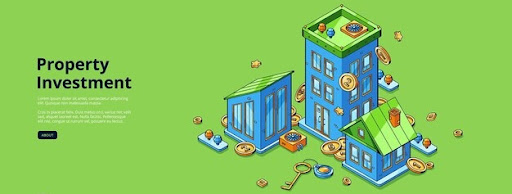As a real estate investor, you need to be aware of the responsibilities you have towards your tenants. Apart from property upkeep, it’s your task to keep your tenants, as well as their personal property, safe at all times. That’s because you may be held liable in the event of a break-in, burglary, and the like. In other words, you should consider yourself as your tenant’s protector from the moment that they move into your real estate investment.
In this article, we’ll go over a few useful tips on how to ensure that your investment property is safe. By keeping these tips in mind, you’ll be able to avoid lawsuits that could put your real estate investment at risk, and ruin your reputation as an investor.
Why should you keep your rental property safe?
There are two primary reasons why you need to protect your rental property. First, you owe it to your tenants to provide them with a home where they can live without worries. When tenants rent your unit, they assume that the home satisfies their need for safety. If they didn’t think that your investment property was safe, they wouldn’t have rented it out in the first place.
Second, you owe it to yourself to protect your property. Investing in real estate can be a challenge, so it would be in your best interests to protect your assets. Besides, if your rental property is unsafe, you’ll probably be forced to close it down and you won’t be able to profit from it. If your goal is to generate cash flow, make sure that you mitigate the risks involved in property management.
By safeguarding your real estate investment, you’ll also be able to avoid legal disputes. Remember, as the landlord, you’re responsible for your tenants. If something bad were to happen to them, you’d be in trouble, so it would be wise to steer clear of scenarios that could be the cause of a lawsuit.
What are the benefits of a safe rental property?

The main benefit of protecting your property is that it boosts your investment’s value. When potential tenants shop around for a rental property, they put “safety” at the top of their list. That’s exactly why experts in property management Boca Raton would always tell you to invest in an area with a low crime rate. By keeping your investment property as safe as possible, you’re making it more attractive to tenants that consider safety to be the most important factor.
There’s also a chance that your insurer will lower your premiums if you maintain your property’s safety. Keep in mind that when insurance companies calculate your premiums, they take your property’s risks into consideration. An investment property with sufficient safety measures will have lower premiums compared to a property with poor safety.
How can you keep your rental property safe?
Fortunately, you don’t need to break the bank to keep your property safe from break-ins and the like. Here are a few useful tips to follow:
#1 Secure the entrances
Let’s start with the entryway, the first “line of defense” that will keep lawbreakers from breaking into the home. If your door has a regular knob, it would be a good idea to replace it with something more secure like a deadbolt lock. Deadbolt locks are more secure than spring locks since they have to be “activated” by a key.
If your doors are made of hollowed wood, make sure to replace them with solid wood doors as these are impossible to break by hand. Finally, don’t forget to rekey the locks every time a tenant moves out. In case the previous tenant attempts to enter the property, they won’t be able to get in.
#2 Light it up
Thieves work at night to take advantage of the dark. To keep them from breaking into your rental property, invest in external lights to expose them in the event that they attempt to commit a crime. Make sure that the main door is well-lit at all times – not only does this deter intruders, but it also protects your tenants as they walk towards the door.
It’s a good idea to get lights with motion sensors to deter intruders from up to twelve feet away. That way, your rental home doesn’t have to be illuminated all the time – the lights will be activated only when a crime is about to be committed.
#3 Install security cameras

A security system may seem like an exorbitant investment, but it’s the best way to keep your property protected. There are various options when it comes to home security systems, such as window sensors, door sensors, and video surveillance (CCTVs), so you’ll have to decide which one covers your investment property’s needs. But if possible, invest in a security device that can be connected to your mobile phone.
Some home security systems can also be configured to perform certain actions. For instance, you can program the system to automatically call the police in case the door sensor is triggered. You’ll have to turn over the security controls to your tenants, but you’ll still be able to maintain surveillance.
#4 Hire a property manager

Keeping your property safe can be an impossible task if you’re far from your rental home. By delegating this task to a property management agent, you’ll be able to gain peace of mind knowing that someone is always keeping an eye on things. Often, the presence of a property management company alone can deter would-be burglars.
In addition, an investment manager can make sure that your tenants themselves aren’t risks to the property. Apart from dealing with the day-to-day tasks of property management, it’s their duty to strictly screen tenants to make sure that they won’t be a liability.
The bottom line
Running a rental business can be lucrative, but you should keep in mind that it’s not entirely a money-making gig. Since you’ve decided to be a real estate investor, you should be aware of your obligation to protect your property and tenants. By keeping these tips in mind, you can make sure that you responsibly run your rental property.
Ultimately, keeping your property safe benefits you, as it guarantees your ability to generate cash flow, boosts your investment’s value, safeguard you from legal issues, and more.






